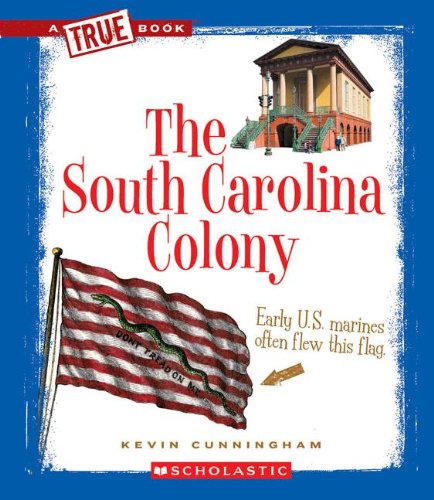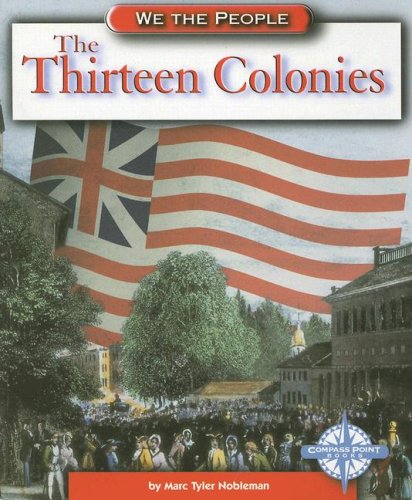-
The Thirteen Colonies
Louis B. Wright
eBookIf the origin of the colonial period was accidental, the ending was not. The representatives of the thirteen colonies who approved the Declaration of Independence in 1776 charted a collision course, aware of the obstacles in their path and the risks they were taking.The events that led to their decision took place over a period of nearly 300 years. Looking back, the wonder is that it culminated so quickly. For a century after its discovery, the New World was little more than a lode to be mined by adventurers seeking profits. It wasn't until the end of the sixteenth century that serious efforts were made to establish permanent colonies. Even then, the perils of the journey and threats of starvation inhibited settlement.But settlers gradually came, spurred, in part, by the fear of religious persecution, but above all, drawn by the hope of owning land. They were a mixed lot: English Separatists from Leiden, French Huguenots, Dutch burghers, Mennonite peasants from the Rhine Valley, and a few gentleman Anglicans. But they shared a quality of toughness.Here is their story from award-winning historian Louis B. Wright.
-
The Thirteen Colonies
Marc Tyler Nobleman
Library Binding (Compass Point Books, Jan. 1, 2002)Introduces the European immigrants who came to North America as explorers and settlers, their interactions with native people, and the wars that ultimately led to their independence. X
X
-
The Thirteen Colonies
Louis B. Wright
Paperback (New Word City, Sept. 6, 2018)If the origin of the colonial period was accidental, the ending was not. The representatives of the thirteen colonies who approved the Declaration of Independence in 1776 charted a collision course, aware of the obstacles in their path and the risks they were taking. The events that led to their decision took place over a period of nearly 300 years. Looking back, the wonder is that it culminated so quickly. For a century after its discovery, the New World was little more than a lode to be mined by adventurers seeking profits. It wasn't until the end of the sixteenth century that serious efforts were made to establish permanent colonies. Even then, the perils of the journey and threats of starvation inhibited settlement. But settlers gradually came, spurred, in part, by the fear of religious persecution, but above all, drawn by the hope of owning land. They were a mixed lot: English Separatists from Leiden, French Huguenots, Dutch burghers, Mennonite peasants from the Rhine Valley, and a few gentleman Anglicans. But they shared a quality of toughness. Here is their story from award-winning historian Louis B. Wright.
-
The South Carolina Colony
Kevin Cunningham
Library Binding (Childrens Pr, Sept. 1, 2011)A True Book-The Thirteen Colonies Are you thrilled by true adventure stories? do you wonder how our founding fathers conquered the wilds of North America to create the United States? You'll experience it all in these books that tell the story of the brave men and women who escaped tyranny from across the ocean to forge a new world in 13 colonies that led to the birth of the United States of America. S
S
-
The South Carolina Colony
Kevin Cunningham
Paperback (Scholastic, Sept. 1, 2011)A True Book-The Thirteen Colonies Are you thrilled by true adventure stories? do you wonder how our founding fathers conquered the wilds of North America to create the United States? You'll experience it all in these books that tell the story of the brave men and women who escaped tyranny from across the ocean to forge a new world in 13 colonies that led to the birth of the United States of America. S
S
-
The South Carolina Colony
Tamara L. Britton
Library Binding (Checkerboard Library, Sept. 1, 2001)Provides a history of South Carolina from before the arrival of European explorers to its statehood in 1788. Q
Q
-
The Thirteen Colonies - South Carolina
Christina M. Girod
Hardcover (Lucent Books, Dec. 14, 2001)South Carolina, established to contribute economic wealth to the British empire, enjoyed immense prosperity through its rice and indigo trade during the colonial period. Deep convictions regarding personal property and individual freedoms that developed out of the drive for economic security led South Carolinians to support American independence, but divisions between poorer backcountry farmers and lowland planters led to civil unrest and political disagreements during Revolutionary times. U
U
-
The South Carolina Colony
Susan E. Haberle
Paperback (Capstone Press, Jan. 1, 2006)Provides an introduction to the history, government, economy, resources, and people of the South Carolina Colony. Includes maps, charts, and a timeline. R
R
-
The Thirteen Colonies
Dennis B. Fradin
Library Binding (Childrens Pr, Jan. 1, 1989)Discusses events that led to the founding of the Thirteen Colonies P
P
-
The Thirteen Colonies
Marc Tyler Nobleman
Paperback (Compass Point Books, Jan. 1, 2002)Introduces the European immigrants who came to North America as explorers and settlers, their interactions with native people, and the wars that ultimately led to their independence. X
X
-
The Thirteen Colonies
Louis B. Wright
Paperback (CreateSpace Independent Publishing Platform, Jan. 11, 2017)If the origin of the colonial period was accidental, the ending was not. The representatives of the thirteen colonies who approved the Declaration of Independence in 1776 charted a collision course, aware of the obstacles in their path and the risks they were taking. The events that led to their decision took place over a period of nearly 300 years. Looking back, the wonder is that it culminated so quickly. For a century after its discovery, the New World was little more than a lode to be mined by adventurers seeking profits. It wasn’t until the end of the sixteenth century that serious efforts were made to establish permanent colonies. Even then, the perils of the journey and threats of starvation inhibited settlement. But settlers gradually came, spurred, in part, by the fear of religious persecution, but above all, drawn by the hope of owning land. They were a mixed lot: English Separatists from Leiden, French Huguenots, Dutch burghers, Mennonite peasants from the Rhine Valley, and a few gentleman Anglicans. But they shared a quality of toughness. Here is their story from award-winning historian Louis B. Wright.
-
The Thirteen Colonies
Brendan January
Paperback (Childrens Pr, March 1, 2001)Examines the creation of the original thirteen colonies in the United States, from the failed colony of Roanoke in 1587 to the formation of the Georgia colony in 1733. U
U